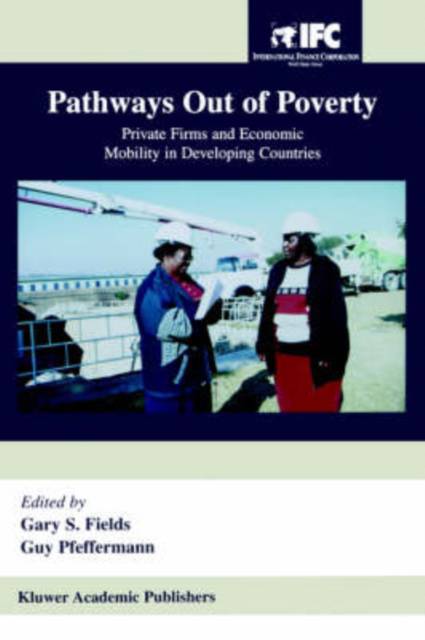
Door een staking bij bpost kan je online bestelling op dit moment iets langer onderweg zijn dan voorzien. Dringend iets nodig? Onze winkels ontvangen jou met open armen!
- Afhalen na 1 uur in een winkel met voorraad
- Gratis thuislevering in België vanaf € 30
- Ruim aanbod met 7 miljoen producten
Door een staking bij bpost kan je online bestelling op dit moment iets langer onderweg zijn dan voorzien. Dringend iets nodig? Onze winkels ontvangen jou met open armen!
- Afhalen na 1 uur in een winkel met voorraad
- Gratis thuislevering in België vanaf € 30
- Ruim aanbod met 7 miljoen producten
Zoeken
Pathways Out of Poverty
Private Firms and Economic Mobility in Developing Countries
Gary S Fields
Paperback | Engels
€ 78,45
+ 156 punten
Omschrijving
Until recently, development economists tended to assume a role for private enterprises in reducing poverty, without articulating it explicitly. How private firms contribute to economic mobility and poverty reduction and what governments can do to enhance their contribution is the theme of this book. In developing countries, private enterprise is far and away the largest source of employment and investment and a significant source of government revenue. In addition to these tangible contributions, private enterprise is an important source of less tangible, but critically important, factors such as openness to ideas, innovation, and opportunity. The book presents new evidence, which demonstrates the essential role which private firms are playing in the course of economic development. Throughout, the focus is on economic mobility. Regional case studies ranging from the Far East to Sub-Saharan Africa hone in on the role of entrepreneurship in development. Drawing on the rich materials of the World Bank's Worldwide Business Environment Survey, key policy factors are identified. Special attention is paid to obstacles facing small and medium-sized enterprises. The concluding chapters focus on practical ways in which governments of developing and transition countries can encourage the capacity of poor people to move up the economic ladder.
Specificaties
Betrokkenen
- Auteur(s):
- Uitgeverij:
Inhoud
- Aantal bladzijden:
- 280
- Taal:
- Engels
Eigenschappen
- Productcode (EAN):
- 9780821354049
- Verschijningsdatum:
- 11/09/2003
- Uitvoering:
- Paperback
- Formaat:
- Trade paperback (VS)
- Afmetingen:
- 161 mm x 230 mm
- Gewicht:
- 444 g

Alleen bij Standaard Boekhandel
+ 156 punten op je klantenkaart van Standaard Boekhandel
Beoordelingen
We publiceren alleen reviews die voldoen aan de voorwaarden voor reviews. Bekijk onze voorwaarden voor reviews.











